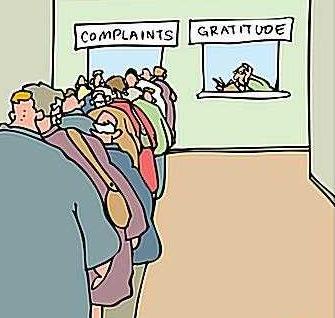Have you ever noticed how much people like to complain? Many people seem to be hard-wired to be critical, to evaluate, and to complain. Jews in particular have been good at this for millennia. For example, in this week’s Torah reading, the people get impatient when Moshe is on top of Mt. Sinai receiving the two tablets of stone, and they build the Golden Calf.
We all know how that story turned out, but it is related to many other instances when the Israelites complain in the Torah.
In fact, from the moment they leave Egypt the Israelites are complaining. They are thirsty. They are hungry. They even want to go back to Egypt to be slaves again! Complaining was a big part of the Israelites’ experience in the wilderness.
Many of us also complain to our partners, children or parents, to our co-workers, friends and communities. We don’t even realize how destructive it can be. The constant barrage of complaints undermines peoples’ ability to volunteer for organizations, to donate money to important causes, and to participate.
The rabbis teach “aveirah goreret aveirah,” negative actions produce more negative actions. This negativity and criticism take on a life of their own, creating more negative energy.
But the answer to all these problems is also found in this week’s Torah reading. After the incident with the Golden Calf, and after Moses has pleaded on behalf of the people, Moses asks to see God’s presence. God allows Moses to come close to his presence, and the Hebrew text is instructive. It states, ”Ani Ah’ahvir Kol Tuvi Al Panekha – I will make all my goodness pass before you.” This is a fascinating choice of words. God doesn’t use k’vod, which is what Moses asks to see – God’s presence, God’s k’vod. Instead the Holy One replies that God will cause God’s goodness to pass before Moses’ face.
In this moment of beautiful intensity, it is goodness that we need most. It is positive energy – compliments.
Recently I read a study saying that parents spend most of their time criticizing their children. Perhaps as much as three quarters or four fifths of the time they are engaged in critique, with only one-quarter or one fifth of the time engaged in compliments. It turns out it would be far healthier to reverse those percentages. Parents should pay four compliments for every negative comment they share. So too we should try the same, with our friends, with our co-workers and with our fellow volunteers.
In every situation, pay four compliments for every negative remark. If we can do that, we can change that negative, complaining energy into positive goodness, and we can transform ourselves and all those around us.
Shabbat shalom.
This post has been contributed by a third party. The opinions, facts and any media content are presented solely by the author, and JewishBoston assumes no responsibility for them. Want to add your voice to the conversation? Publish your own post here. MORE

